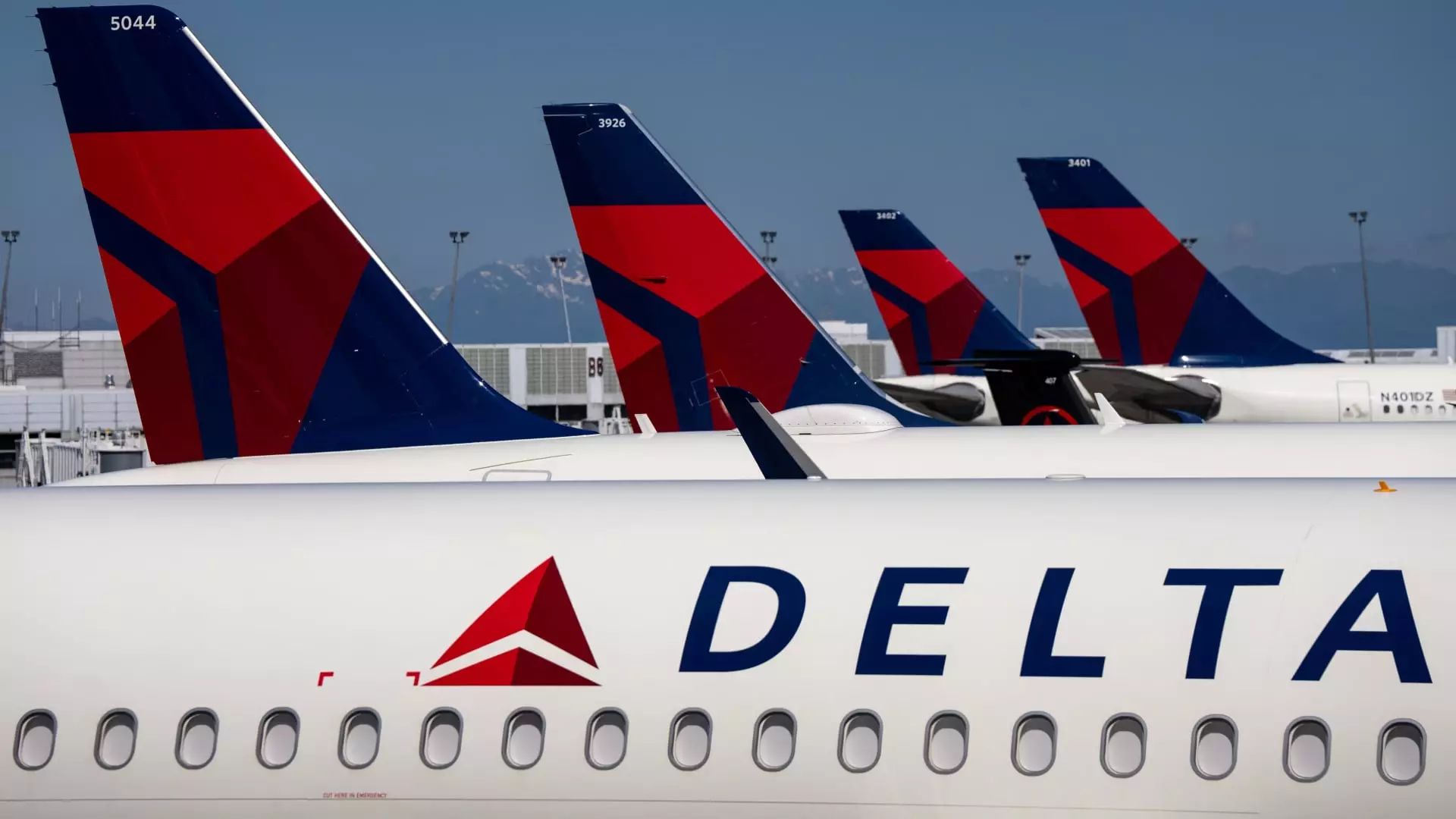Delta Air Lines recently made headlines after blaming Microsoft and CrowdStrike for a massive IT outage that led to the cancellation of thousands of flights. Delta CEO Ed Bastian accused the two companies of causing disruptions that cost the airline approximately $500 million. However, Microsoft fired back at Delta, claiming that the carrier failed to modernize its IT infrastructure, unlike its competitors, which allowed them to recover more quickly from the outage.
In a scathing letter to Delta’s attorney, Microsoft’s representative Mark Cheffo highlighted the fact that Delta had not invested in modernizing its technology, which ultimately contributed to the prolonged recovery process. Despite Delta’s claims of investing billions of dollars in IT capital expenditures since 2016, Microsoft argued that the airline’s outdated infrastructure was a significant factor in the delays in restoring operations.
Delta, on the other hand, defended its track record of investing in safe and reliable service for its customers and employees. The airline stated that it has made substantial investments in IT capital expenditures over the years and disputed Microsoft’s allegations of negligence and willful misconduct. Delta emphasized that it values the trust and satisfaction of its customers and remains committed to delivering superior service despite the challenges posed by the recent IT outage.
Microsoft’s Offer of Assistance
Microsoft also refuted Delta’s claims that the company did not offer any assistance during the outage. In fact, Microsoft stated that it had reached out to Delta employees to offer help free of charge. However, Delta reportedly turned down Microsoft’s offer multiple times, opting instead to rely on other technology providers like IBM and Amazon for support. This decision further complicated the recovery process for Delta, as its crew-scheduling platform was overwhelmed by the outage.
The Delta Air Lines incident serves as a cautionary tale for companies that fail to prioritize IT modernization and infrastructure upgrades. In today’s digital age, businesses must invest in cutting-edge technology to ensure seamless operations and prevent costly disruptions. By neglecting to update its IT systems, Delta faced significant challenges in restoring services and incurred substantial financial losses as a result.
The clash between Delta Air Lines and Microsoft sheds light on the importance of IT modernization and the risks associated with outdated technology infrastructure. While Delta may have invested heavily in IT expenditures, the lack of modernization ultimately hindered its ability to recover swiftly from the recent IT outage. Moving forward, it is essential for companies to prioritize technology upgrades and proactively address potential vulnerabilities to avoid similar incidents in the future. As technology continues to play a pivotal role in business operations, organizations must adapt to the ever-evolving digital landscape to remain competitive and resilient in the face of unforeseen challenges.


Leave a Reply